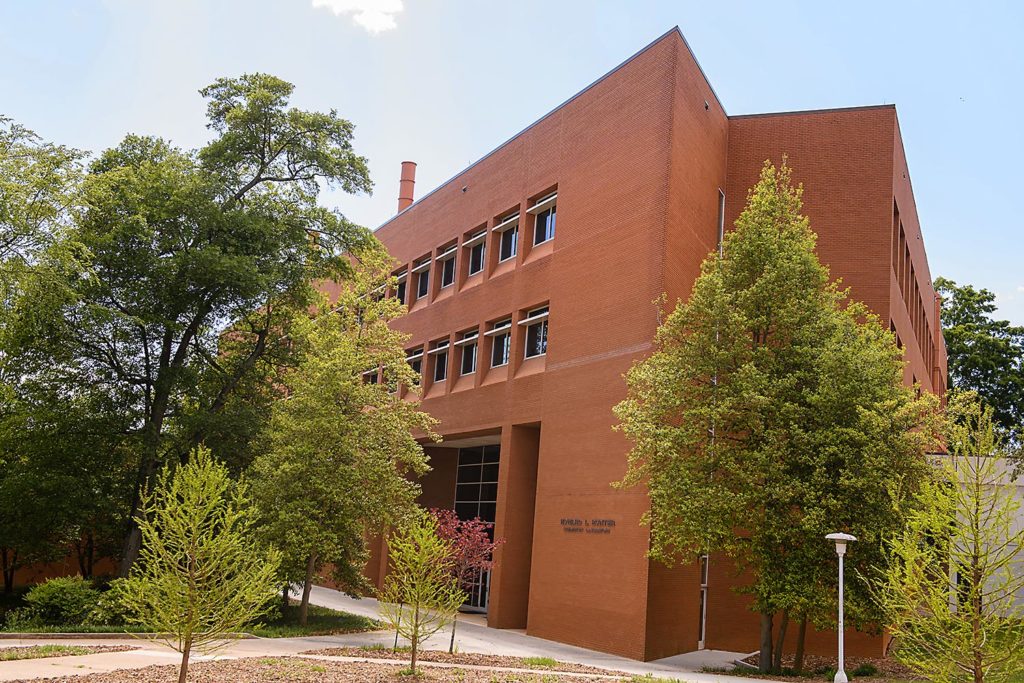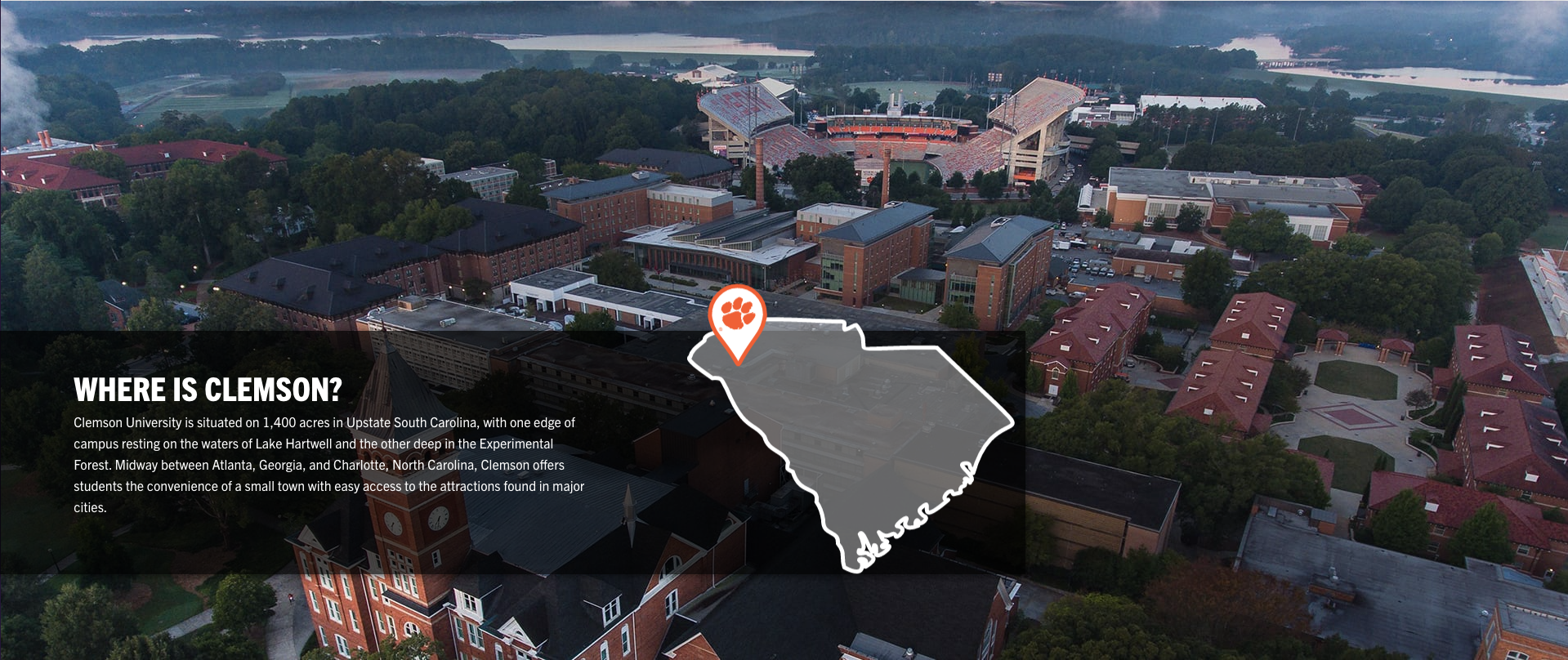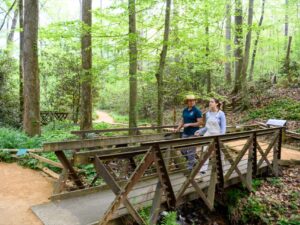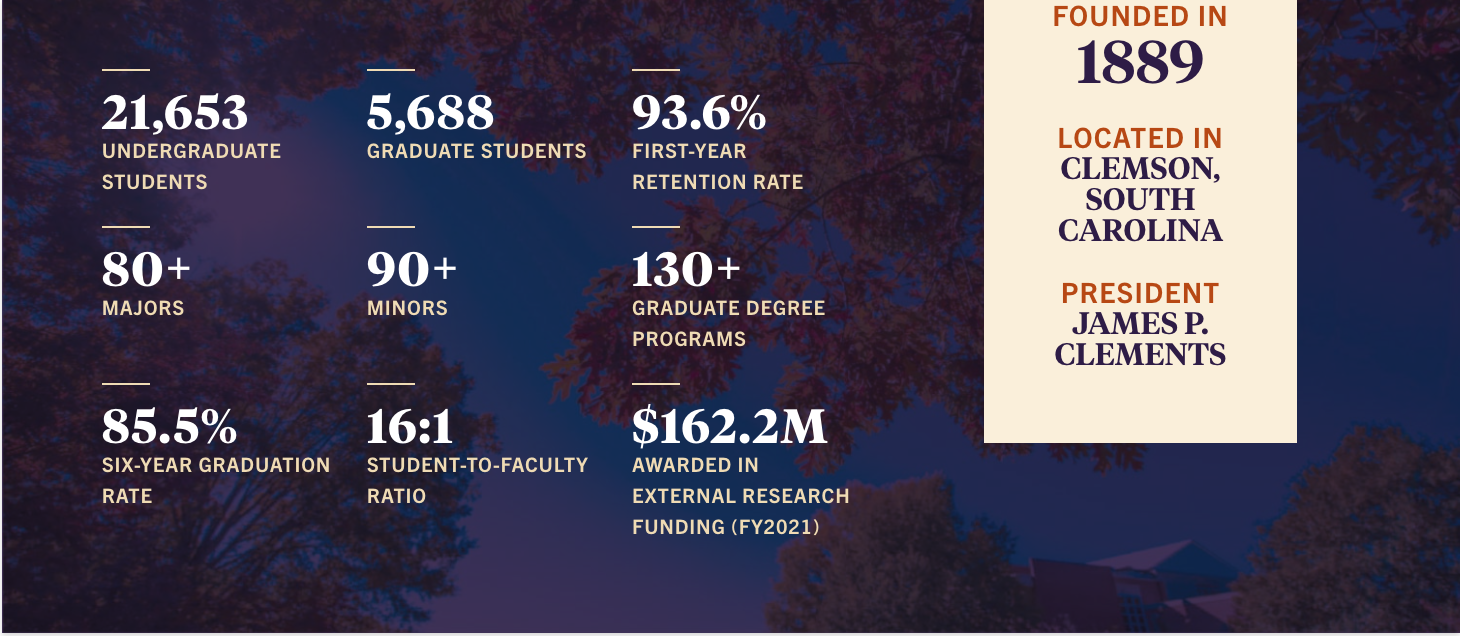The Department of Chemistry members are committed to advancing fundamental and applied science, to training future scientists to their fullest potential, and to providing the tools for students to compete in the global market. We offer cutting-edge opportunities in analytical, inorganic, organic and physical chemistry, as well as in a broad range of interdisciplinary areas such as materials, polymer, solid-state and computational chemistry. Our programs have applications in a wide range of fields, including energy, security, drug design and nanotechnology.

About Clemson

Clemson University is a selective, public, Carnegie R1 research university in a college-town setting. Established in 1899 through the will of the founder, the University provides bachelor’s, master’s and doctoral degrees in more than 100 majors through seven academic colleges: Agriculture, Forestry and Life Sciences; Architecture, Arts and Humanities; Behavioral, Social and Health Sciences; Business; Engineering, Computing and Applied Sciences; Education; and Science. The University also has Extension offices in every county of the state as well as teaching and research sites in Charleston, Columbia, Greenville, and Greenwood, as well as four international sites. Today, Clemson has a total enrollment of 21,653 undergraduate and 5,688 graduate students. The student to faculty ratio is 16:1, with an average undergraduate class size of 31. The six-year graduation rate is 85.5 percent.
Clemson is located on a 20,000-acre campus in Upstate South Carolina in the shadow of the Blue Ridge Mountains and adjacent to Lake Hartwell. The City of Clemson has approximately 18,800 year-round residents. Clemson enjoys a moderate temperature year-round with average temperatures in January of 30°–50°F and in August of 69°–90°F. We have a little bit of everything, including…
600+ clubs and organizations

56,000 acres of water

Dozens of trails

Downtown amenities

Near to Greenville, Charlotte, and Atlanta

A great view of the Blue Ridge Mountains












